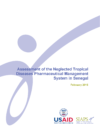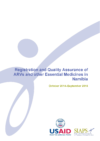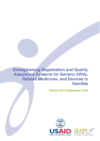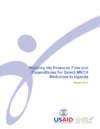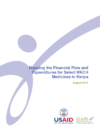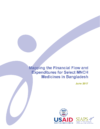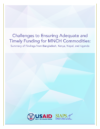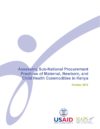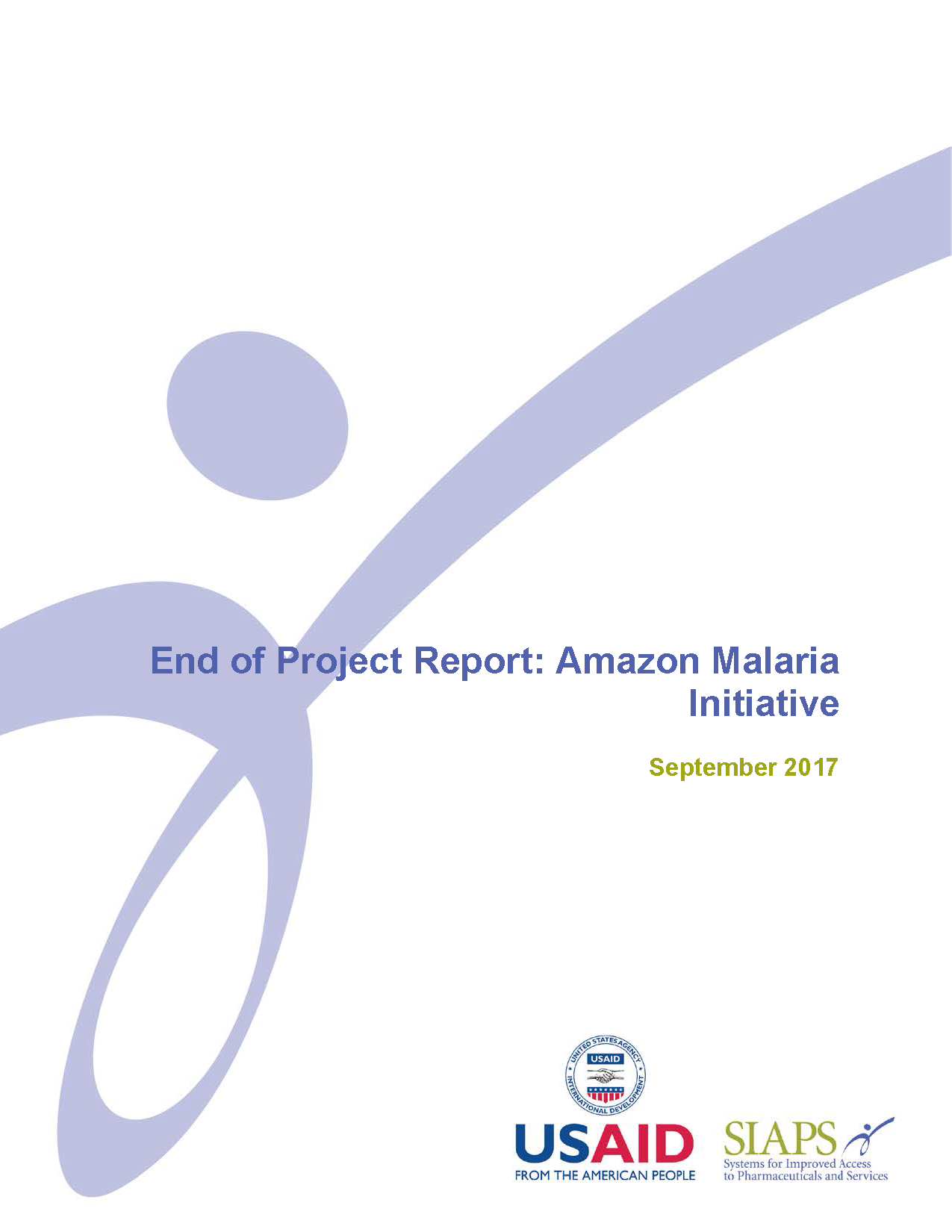Supply chain constraints plague current neglected tropical disease (NTD) prevention and treatment programs. The rapid expansion of NTD control activities has not been without pharmaceutical and health system challenges. Inadequate NTD drug management in many countries has resulted in excess stocks, leading to waste resulting from drug expiry or stock-outs, leading to treatment interruption. SIAPS has … Read more
Assessment, Distribution, G Daniel, G Simon, KW Diop, Logistics Management Information System, neglected tropical disease, NTD, Senegal, Storage, Supply chain management, Technical Report
SIAPS provided technical assistance to facilitate the expedited assessment and registration of new and existing ARV formulations to support the implementation of the revised Namibian ART guidelines (dated January 2014). The technical assistance focused on improving the efficiency of the regulatory system so that the recommended new first-line fixed-dose combination ARVs that contain tenofovir and … Read more
In Namibia, USAID has been providing funding for technical assistance in the areas of pharmaceutical management and systems strengthening since 2003. During this period, the Rational Pharmaceutical Management Plus (RPM Plus) and Strengthening Pharmaceutical Systems (SPS) programs were implemented. RPM Plus supported interventions that largely focused on strengthening systems for the antiretroviral therapy (ART) and … Read more
Since the report of the United Nations Commission on Life-saving Commodities for Women and Children (UNCoLSC) was published in 2012, much has been done to highlight the challenges countries face in ensuring the availability of essential commodities and to create resources to assist countries in this endeavor. In most settings, these commodities are procured with government … Read more
Since the report of the United Nations Commission on Life-Saving Commodities for Women and Children (UNCoLSC) was published in 2012, much has been done to highlight the challenges countries face in ensuring the availability of essential commodities and to create resources to assist countries in this endeavor. In most settings, these commodities are procured with government … Read more
Since the report of the United Nations Commission on Life-saving Commodities for Women and Children (UNCoLSC) was published in 2012, much has been done to highlight the challenges countries face in ensuring the availability of essential commodities and to create resources to assist countries in this endeavor. In most settings, these commodities are procured with government … Read more
As countries pursue the maternal, newborn, and child health (MNCH) targets established under Sustainable Development Goal 3, they will need to ensure the continuous availability of essential health commodities to prevent and treat the conditions that cause morbidity and mortality in those groups. Since the report of the United Nations Commission on Life-Saving Commodities for … Read more
The SIAPS Program works at both the global and country levels to improve pharmaceutical management systems that increase access to quality medicines. SIAPS has developed a methodology to assess sub-national procurement practices. This methodology was used in Kenya to assess county-level procurement practices for essential maternal, newborn, and child health (MNCH) commodities and to study … Read more
Project dates: January 2012 – September 2017
Irrational medicine use and poor pharmaceutical management are widespread problems throughout all levels of Sierra Leone’s health system. Misuse, underuse, and overuse of medicines are particularly worrying because they contribute to the rise of antimicrobial resistance (AMR) and threaten the effective prevention and treatment of infections caused by bacteria, parasites, and viruses. Recognizing that coordinated … Read more
